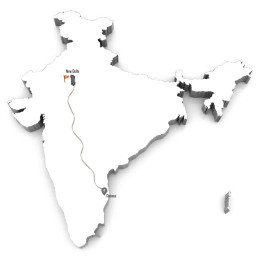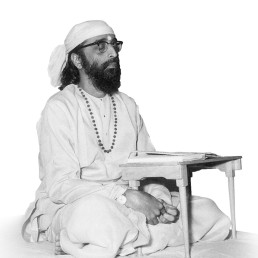
Jnana Yajna 61

Year & Dates:
October 03, 1959 to October 23, 1959

Yajna Topic:
Shrimad Bhagavad Gita- Chapters 5 & 6

Place:
New Delhi, India.
The turf was familiar, and when walking into the premises of the Modern High School, Barakhamba Road, in New Delhi, one could recall the very first Gita Jnana Yajna of Pujya Gurudev in 1955 on those same grounds. So, when the 61st Jnana Yajna commenced on October 3, 1959, the audience of New Delhi were nostalgic and ready to tune into the Celestial Song of Bhagavan Krishna through the powerful rendition of Pujya Gurudev Swami Chinmayananda who had showered His Grace on New Delhi in several previous yajnas.
The inaugural ceremony shone even more as Swami Ranganathananda, of the Ramakrishna Mission who emphasized practical, universal Vedanta, graced the opening day. In his welcome address, Shri Mohan Kapoor of the Delhi Yajna Committee expressed how Pujya Gurudev’s discourses were the much-needed prescriptions to cure the precarious imbalance of the times.
Ishwara Tattva in Guru
A crucial bridge between Karma Yoga and Pure Meditation is how Pujya Gurudev described Gita chapter 5. Titled the Renunciation of Action, it details what is the spirit of renunciation and what is meant by the Yoga of Renunciation of Action. Pujya Gurudev spelled out the effects of actions done with this attitude particularly on the inward development and spiritual evolution. He then guided the sincere audience to the portal of chapter 6, the technique of meditation, of taking the mind trained to renounce the sense of agency or the anxieties for the results of actions and direct it toward self-unfoldment.
As a practical exercise in spirituality, Pujya Gurudev announced that the Avabhrta snaana trip for the 61st yajna would be to Garhmukhteshwar, a sacred place on the banks of Ganga, 55 miles away from Delhi. He reminded seekers that it was a trip of 24-hour temporary sannyas with minimal focus on bodily comforts. On the evening of October 17, 1959, 126 devotees boarded three buses with joyful kirtans to reach the dharmashala at Brij Ghat which is near Garhmukteshwar. Under a full moon sky with the gentle lapping waters of the scenic Ganga in the background, the satsang with Pujya Gurudev full of His energy and humor was a sublime experience. The sacred bath in the Ganga early next morning was refreshing. After that, the devotees gathered around Pujya Gurudev for three to four hours in the central hall of the dharmashala to listen to his invaluable explanation of how Dharma should become one’s lakshana (characteristic) through uncompromising sadhana. He said firmly that aspirants should meditate not on the personality of a living Guru but must contemplate on the spiritual ideals that a Guru taught, the Ishwara Tattva behind the Guru, symbolized as the Real Guru Mukteshwar.
Interestingly, as time went unnoticed in that timeless satsang, the group could not visit the actual temple. However, Pujya Gurudev posed a thought-provoking question: “”If after the Ganga-bath and the Spiritual Life you lived, you still think that you have not visited Guru Mukteshwar, then whom can we blame?”it

“Think,” Says Pujya Gurudev
“Man should uplift himself by himself” is the open statement declared by no less a person than Lord Krishna Himself-not cooed in a playful mood in the company of the Gopikas of the Jamuna-banks at a hilarious hour of laughter and play, but roared to Arjuna of the battlefield at a serious moment of His life’s fulfillment as an Avataara. Man, if he wants to exalt himself into his greater cultural and spiritual possibilities, now lying dormant in him, he has to raise the lower in himself to the greater perfection that is the true and eternal central core in himself.
From Tyagi Magazine
Specially prepared milk powder diluted with hot water is the full diet for an infant. But the same feeding-bottle will not satisfy the growing demands of a boy vigorously working and mischievously knocking about all day around. To him more solid bread and butter is the diet. We need not be great intellectuals to understand that buttered toast at the same time would choke and kill an infant child.
Similarly, here, work without self is healthy for the beginner, but a developed seeker needs more and more quietude and self-withdrawal for growing in his steady contemplation of the life within. Earlier, ‘wok-with-out-self’ is the means, afterwards ‘work on Self’ is the means: and the process is continued until, working or not working, through meditation it is realized that the Self alone is the essence in the ego which till then was recognized as the only reality.
From Tyagi Magazine
A good person cannot be miserable!
Discover the unidirectional nature of spiritual evolution, where every conscious choice and righteous deed propels us forward on the path of self-discovery and enlightenment. Join us as we navigate the peaks and valleys of our journey, understanding that setbacks are not regressions but opportunities for growth and refinement.